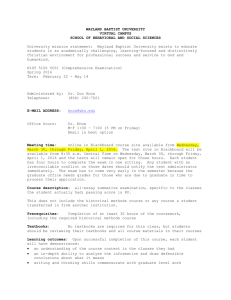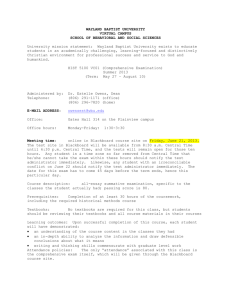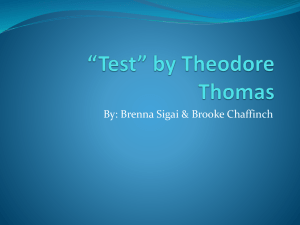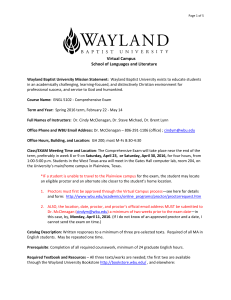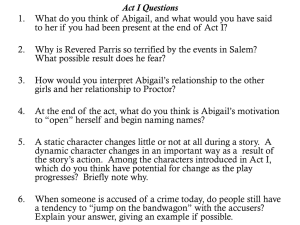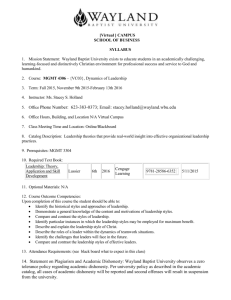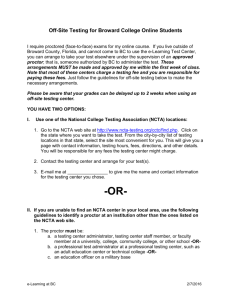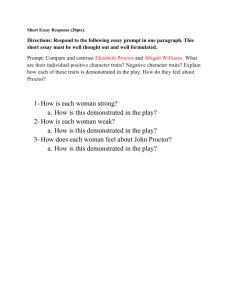Psychopharmacology - Wayland Baptist University
advertisement
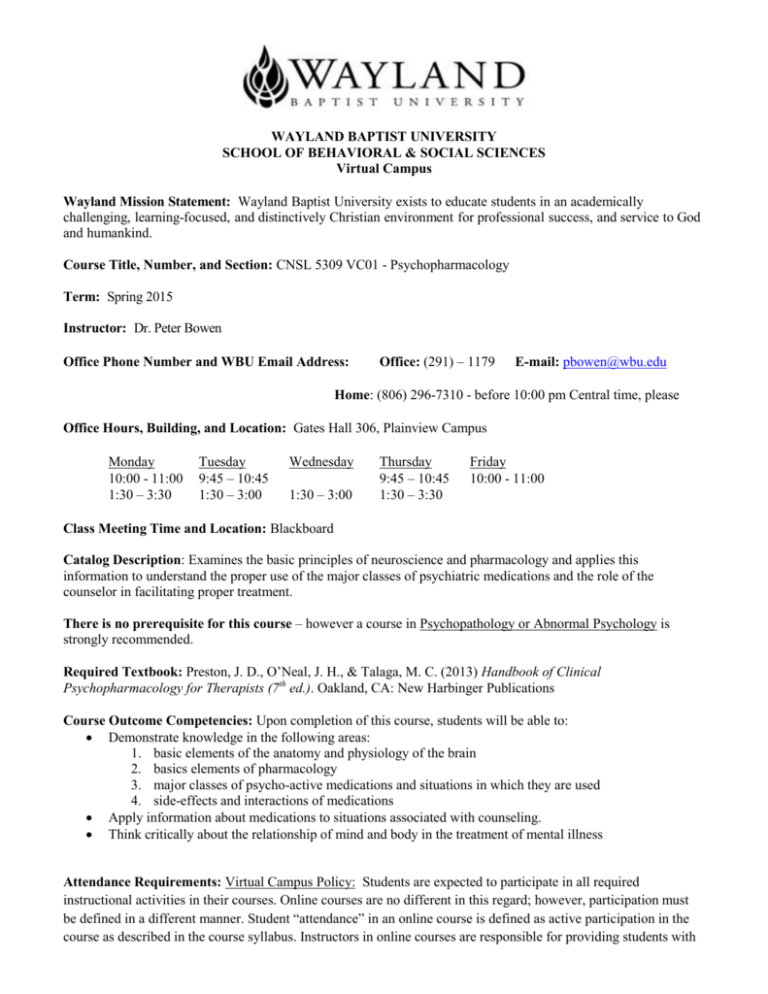
WAYLAND BAPTIST UNIVERSITY SCHOOL OF BEHAVIORAL & SOCIAL SCIENCES Virtual Campus Wayland Mission Statement: Wayland Baptist University exists to educate students in an academically challenging, learning-focused, and distinctively Christian environment for professional success, and service to God and humankind. Course Title, Number, and Section: CNSL 5309 VC01 - Psychopharmacology Term: Spring 2015 Instructor: Dr. Peter Bowen Office Phone Number and WBU Email Address: Office: (291) – 1179 E-mail: pbowen@wbu.edu Home: (806) 296-7310 - before 10:00 pm Central time, please Office Hours, Building, and Location: Gates Hall 306, Plainview Campus Monday 10:00 - 11:00 1:30 – 3:30 Tuesday 9:45 – 10:45 1:30 – 3:00 Wednesday 1:30 – 3:00 Thursday 9:45 – 10:45 1:30 – 3:30 Friday 10:00 - 11:00 Class Meeting Time and Location: Blackboard Catalog Description: Examines the basic principles of neuroscience and pharmacology and applies this information to understand the proper use of the major classes of psychiatric medications and the role of the counselor in facilitating proper treatment. There is no prerequisite for this course – however a course in Psychopathology or Abnormal Psychology is strongly recommended. Required Textbook: Preston, J. D., O’Neal, J. H., & Talaga, M. C. (2013) Handbook of Clinical Psychopharmacology for Therapists (7th ed.). Oakland, CA: New Harbinger Publications Course Outcome Competencies: Upon completion of this course, students will be able to: Demonstrate knowledge in the following areas: 1. basic elements of the anatomy and physiology of the brain 2. basics elements of pharmacology 3. major classes of psycho-active medications and situations in which they are used 4. side-effects and interactions of medications Apply information about medications to situations associated with counseling. Think critically about the relationship of mind and body in the treatment of mental illness Attendance Requirements: Virtual Campus Policy: Students are expected to participate in all required instructional activities in their courses. Online courses are no different in this regard; however, participation must be defined in a different manner. Student “attendance” in an online course is defined as active participation in the course as described in the course syllabus. Instructors in online courses are responsible for providing students with clear instructions for how they are required to participate in the course. Additionally, instructors are responsible for incorporating specific instructional activities within their course and will, at a minimum, have weekly mechanisms for documenting student participation. These mechanisms may include, but are not limited to, participating in a weekly discussion board, submitting/completing assignments in Blackboard, or communicating with the instructor. Students aware of necessary absences must inform the professor with as much advance notice as possible in order to make appropriate arrangements. Any student absent 25 percent or more of the online course, i.e., nonparticipatory during 3 or more weeks of an 11 week term, may receive an F for that course. Instructors may also file a Report of Unsatisfactory Progress for students with excessive non-participation. Any student who has not actively participated in an online class prior to the census date for any given term is considered a “no-show” and will be administratively withdrawn from the class without record. To be counted as actively participating, it is not sufficient to log in and view the course. The student must be submitting work as described in the course syllabus. Additional attendance and participation policies for each course, as defined by the instructor in the course syllabus, are considered a part of the university’s attendance policy. Statement on Plagiarism and Academic Dishonesty: Wayland Baptist University observes a zero tolerance policy regarding academic dishonesty. Per university policy as described in the academic catalog, all cases of academic dishonesty will be reported and second offenses will result in suspension from the university. Disability Statement: In compliance with the Americans with Disabilities Act of 1990 (ADA), it is the policy of Wayland Baptist University that no otherwise qualified person with a disability be excluded from participation in, be denied the benefits of, or be subject to discrimination under any educational program or activity in the university. The Coordinator of Counseling Services serves as the coordinator of students with a disability and should be contacted concerning accommodation requests at (806) 291- 3765. Documentation of a disability must accompany any request for accommodations. Course Requirements and Grading Criteria: Format of Course: This course will be divided into weekly sections. Each section will have assignments to be completed. The sections are linked from the main course page. Be sure to get assignments in by the due date. Late assignments will be penalized a letter grade per day. Requirements and Evaluation: 1) Your basic knowledge of people, terms and characteristics will be evaluated by a series of quizzes and exams. A) Each week you will be required to take an online quiz on basic ideas covered in the readings. You will be required to make a 100 on the quiz each week. Don’t panic! Here’s the catch: 1) The quiz will cover basic items which should be pretty clear if you read the material and 2) You may retake the quiz as many times as you like. The computer will provide feedback on your score as soon as you finish the quiz. You may not get exactly the same questions each time, but you should be able to make your 100. This ensures that you have successfully encountered the most basic elements of the course and will help prepare you for the major exams. A 100 on all quizzes will count as 10% of your final grade. B) There will also be 3 major exams covering the material. These will include both objective questions (multiple choice, etc.) and short answer/essay questions. You will have only one chance to take these exams and the first 2 exams will need to be proctored. The final will be a “take-home” written exam and will not require a proctor. Proctors must be approved by WBU’s virtual campus. Wayland faculty and staff are already approved, but anyone outside of Wayland will need approval. You will need to have your proctor approved BEFORE the first exam. I suggest that you start the approval process immediately to avoid any last minute crises. You should also arrange an appointment time with your proctor before each exam. The WBU policy on proctors is printed at the end of this syllabus or you can follow this link: WBU policy on proctors: http://www.wbu.edu/academics/online_programs/proctor/proctorrequest.htm) The average of these exams will be 50% of your final grade. 2) You will also be required to participate in online discussions. Each week will have discussion board threads that will ask you to respond to questions that I pose; it will also allow you to make your own comments and pose your own questions. It allows you to interact with the rest of the class, and it allows me to know that you are thinking and applying the ideas that you are reading about. The discussion board is meant to be a site of free thinking and free communication. But it is only good if everyone contributes their 2 cents worth. You will be graded according to your participation. I will not grade your grammar or ‘quality’ of responses (unless some smart-alek starts posting stuff like “ssscilndi blah blah ssciihsi”). [Note: Sometimes I will ask you to post a homework assignment to the discussion board. I may post a separate homework grade for that particular post that will consider the quality of the response!] I will monitor responses to see who is active and who is slacking. Please don’t wait till the last day to get involved and don’t just get on once. The value is in the exchange of ideas between people. Like a regular discussion, it needs some back and forth to be of real value! You will not receive full credit if you just post on one day. Each week’s forum will give instructions on a minimum number of question in which you need to participate. Your participation will count 10% of your final grade. 3) Other assignments will be made. These will be listed by weekly sections under the ‘Course Content (Assignments)’ section on the main menu. Some will involve answering questions about readings in the discussion boards; others may ask you to submit a response via email or an assignment link. Assignments will be due by the last day of the week for that section. Your scores on these assignments will be 10% of your final grade. 4) The final requirement will be the major project for the term. This will require you to create a detailed case description for an individual that needs treatment for mental illness. Your case should describe the history, symptoms, treatments and outcomes (both good and bad) for the person. As this is a psycho-pharmacology class, the treatment MUST include the use of medications in some way (even if it is not an optimal or final treatment) and your description of the case should demonstrate your knowledge of the use of the medications. The case may be fictional or may be based on a real case, but, in either case, it should be as realistic as possible. If you base your case on a real one, be sure that your telling of the story is original and not taken from (or directly based on) another written case. I want to see how well YOU understand the ideas! (Also - if based on a real case, be sure to account for the confidentiality of all people involved.) Cite references to support the validity of the information in your report. Be sure that your case covers and demonstrates that you understand ALL of the following elements: o Critical signs and symptoms for differentiating diagnoses and ideal treatments o Different treatment options (including medications) and decision process in determining treatments o Expected benefits and adverse effects of treatment o Ways to deal with non-response (or sub-optimal response) to initial treatment o Ways to integrate medical and non-medical treatments o Role of the counselor in dealing with medical treatments. If you are basing your paper on a real case, you may choose to add some fictional pieces to make sure that all of these elements are addressed. For example, you might add a side effect or preliminary non-response to illustrate potential problems or you might need to invent a future for this person (if you are currently working with a case) to show the longer-term outcome of the case. The paper should be written in APA format and sources should be cited and of professional quality (written by professionals in the field and, preferably, peer-reviewed). If you are not well-versed on APA format, you might want to check the APA manual or look at these sites: a. You can find a good overview of this style here: http://owl.english.purdue.edu/owl/resource/560/01/ b. Or you can go to the APA site which has FAQs as well as a nifty tutorial: http://www.apastyle.org/ The paper should be proof-read carefully! While a mistake or 2 may creep into anyone’s report, poorly written papers will NOT be accepted. If you have concerns on this, you are welcome to submit a draft for review before the due date. You are also encouraged to make use of the Wayland Writing Center for help with your papers. You can find more information about the writing center at their web page: http://www.wbu.edu/academics/academic_resources/writing_center/ **The report will be due through SafeAssign on Blackboard by April 29th. This will count as 20% of your final grade. One final word on the project: I take plagiarism very seriously. (See policy on Academic Dishonesty above.) Please note that you may not use other people’s words without clearly marking AND citing the source of those words. A number of students have problems with this – sometimes unintentionally. You must distinguish between words that you write and words that you borrow from other sources. If you take words from another source, you must use “quotation marks” to show what is copied. If the quote is long (a paragraph), then introduce that paragraph by clearly noting that it comes from another source and then indent that paragraph. In both cases, you must have a citation that tells your source. A citation alone is not sufficient to indicate that something is a quote. You should have citations both for quoted passages AND for material that you have written (in your own words) that is based on information from other sources. One more thing – quotes should be rare! APA style, in general, discourages quoting. Only use a quote when it is critical to deal with the original wording (for example, when you are talking about the diagnostic criteria for a disorder – then the wording of the DSM would be important.) Otherwise, you should do your own writing, summarizing the main points from the articles that you cite. Summarizing or paraphrasing does NOT mean changing a few words in the original sentence. Your writing should not the same basic sentence with slightly different wording. Let me know if you have questions on this! The University has a standard grade scale: A = 90-100, B = 80-89, C = 70-79, D = 60-69, F= below 60, W = Withdrawal, WP = withdrew passing, WF = withdrew failing, I = incomplete. An incomplete may be given within the last two weeks of a long term or within the last two days of a microterm to a student who is passing, but has not completed a term paper, examination, or other required work for reasons beyond the student’s control. A grade of “incomplete” is changed if the work required is completed prior to the last day of the next long (10 to 15 weeks) term, unless the instructor designates an earlier date for completion. If the work is not completed by the appropriate date, the I is converted to an F. Student grade appeals: Students shall have protection through orderly procedures against prejudices or capricious academic evaluation. A student who believes that he or she has not been held to realistic academic standards, just evaluation procedures, or appropriate grading, may appeal the final grade given in the course by using the student grade appeal process described in the Academic Catalog. Appeals may not be made for advanced placement examinations or course bypass examinations. Appeals limited to the final course grade, which may be upheld, raised, or lowered at any stage of the appeal process. Any recommendation to lower a course grade must be submitted through the Executive Vice President/Provost to the Faculty Assembly Grade Appeals Committee for review and approval. The Faculty Assembly Grade Appeals Committee may instruct that the course grade be upheld, raised, or lowered to a more proper evaluation. Tentative Schedule: Part 1: Introduction and Basics of Neurobiology and Pharmacology Week 1 Week 2 Feb 23 – Mar 4 Mar 4 – Mar 11 Chapters 1 - 3 Chapters 3 – 5 Exam 1 available March 9 - 14 Part 2: Clinical Syndromes Week 3 Week 4 Week 5 Week 6 Mar 11 – Mar 25 Chapters 6 - 8 [Spring Break in middle of week 3] Mar 25 – Apr 1 Chapters 9 - 11 Apr 1 – Apr 8 Chapters 12 – 14 [Easter during this week – plan ahead, materials will be available early] Apr 8 – Apr 15 Chapters 14 - 15 Exam 2 available April 13 - 18 Part 3: Medications Week 7 Week 8 Week 9 Week 10 Apr 15 – 22 Apr 22 – Apr 29 Apr 29 – May 6 May 6 – 16 Chapter 16 Chapters 17 – 18 *Case due April 29 Chapters 19 and 23 Chapters 20 - 22 Exam 3 (“take-home” style) due by May 14 Policy for Proctor Approval Please read before submitting a request for approval! 1. Students are responsible for securing the services of a suitable proctor according to the requirements listed below. 2. Wayland Staff are already approved as proctors. Please contact the Wayland Staff member you would like to be your proctor ASAP to ensure they are able to serve as your proctor. Call at least 1 week in advance to schedule your testing time with your proctor. 3. Once a proctor is approved, he or she may continue administering tests throughout the semester without re-approval. 4. You must submit your completed form one week prior to the first test date. The proctor must be approved before examination information can be sent. Tests are not sent to proctors, instead they will receive a user name and password to access our proctor site on Blackboard. 5. The criteria established for proctor approval are: a. knowledge of and experience in the administration of examinations b. current employment on a full-time basis with professional reputation that would be severely tarnished if improprieties were discovered 6. Based on the above, acceptable proctors are: a. Wayland center directors and Wayland approved faculty b. librarians holding the Master of Library Sciences distinction c. authorized employees at U.S. Military Education centers d. authorized employees at university/college testing facilities e. faculty member of a university or college 7. Exceptions to the above will not be favorably considered. In no case will relatives, neighbors, or other students be approved. Persons who are employed by the same company/organization as the student will also not be approved. 8. Please make sure that your proctor is able to administer tests online, using a computer with reliable access to the internet. If he/she is not, you will need to find another proctor unless your instructor has provided a paper version of the test. 9. Once your proctor form has been received, you will receive a confirmation sent to the email address listed on your form. If you have not received a confirmation within two days of submitting your proctor form, please check to make sure we received it. Click Here to go to the Proctor Approval Request Form http://catalog.wbu.edu
